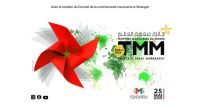Technology companies, industry groups, and trade associations are enthusiastically supporting a new Senate bill that would make it easier for foreign nationals working in the technology sector to stay and work in the United States.
The Immigration Innovation Act of 2015 was introduced by Senator Orrin Hatch, with a bipartisan group of co-sponsors including Senators Amy Klobuchar, Marco Rubio, Chris Coons, Jeff Flake, and Richard Blumenthal. It addresses several of the technology industry's primary concerns. The new bill would:
Raise the number of H-1B visas for skilled workers from 65,000 a year to 115,000 with a possible increase to 195,000 based on demand;
Allow spouses of H-1B visa holders to obtain employment authorization and let more scientists and researchers into the country;
Eliminate the cap on H-1B visas for professionals with advanced degrees;
Recognize that foreign students at U.S. colleges and universities have "dual intent" so they are not penalized for wanting to remain in the United States after graduation
Recapture green card numbers that were approved by Congress in previous years but not used;
Eliminate annual per country limits for employment-based visa petitioners.
Introduction of the Immigration Innovation Act follows closely behind President Obama’s 2014 executive order that contained several other initiatives supported by the technology industry. The 2014 executive order directs the United States Citizenship and Immigration Service (USCIS) to remove unnecessary restrictions on career progression and job mobility, allowing workers facing visa backlogs to move from one job to another once an immigrant visa petition is approved. Currently, foreign nationals must wait years (more than 10 in the case of Indian and Chinese nationals) to be promoted or change employers. The executive order directs U.S. Immigration and Customs Enforcement (ICE) and USCIS to improve the current Optional Practical Training (OPT) program for foreign national students by expanding the degree programs that are eligible for science, technology, engineering, and math (STEM) extensions.
It also directs USCIS to provide clear and concise guidance on who qualifies for a specialized knowledge L-1B visa. The L-1B visa category is for intracompany transferees with specialized knowledge of a company’s proprietary tools, technologies, procedures, and/or policies. Many technology companies rely heavily on this visa category to transfer employees from foreign affiliates to the United States. USCIS has been entirely inconsistent in defining and interpreting "specialized knowledge" when adjudicating L-1B petitions, making it very difficult for employers to use. With the quota limitations imposed by the H-1B program, employers have a greater need for a streamlined L-1B program.
Despite the technology industry’s enthusiasm for the bill, there is plenty of opposition. Senator Jeff Session has called the lack of science, technology, engineering, and math workers a "hoax." He and other lawmakers opposed to the bill claim that technology companies are using the program to obtain cheaper foreign labor. Whether the technology industry and its allies can overcome opposition to the Immigration Innovation Act of 2015 is an open question. Clearly, if they succeed, and President Obama’s initiatives are implemented, they will have realized many of the changes they have been advocating for years.
Carlton Fields Jorden Burt









